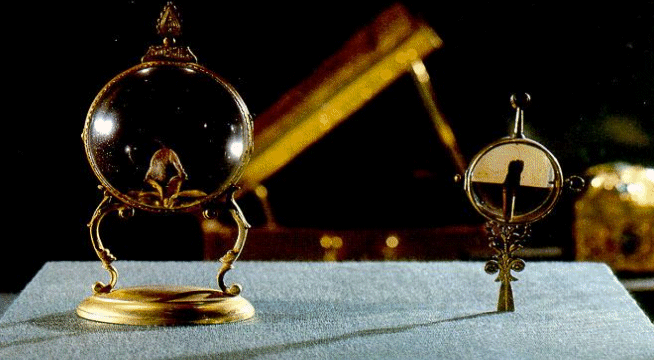Thursday
As well as the Democrats did in Tuesday’s election, loyal Donald Trump supporters kept them from doing even better. Rightwing Christian evangelicals were a big reason why the GOP held onto certain seats they would otherwise have lost. Vox reports that, because of social conservatives, “the GOP managed to avoid a nightmare scenario in the House, where they lost 35 seats, and the party appears to have gained seats in the Senate.”
I thought of the evangelicals yesterday while teaching Salman Rushdie’s “Prophet’s Hair” to an Anglophone Literature class at the University of Ljubljana. There we see a character who twists the Koran to serve his own self interests just as many evangelicals do. It requires perverse rationalizing for a Christian to support a president who demonizes the stranger and spurns the poor.
“The Prophet’s Hair” has an avaricious moneylender who is an indifferent Muslim. While Islam, like the New Testament, frowns upon money lending, Hashim finds a way to justify what he does:
Hashim was fond of pointing out that while he was not a godly man he set great store by ‘living honourably in the world’. In that spacious lakeside residence, all outsiders were greeted with the same formality and respect, even those unfortunates who came to negotiate for small fragments of Hashim’s great fortune, and of whom he naturally asked an interest rate of 71 per cent, partly, as he told his khichri- spooning wife, ‘to teach these people the value of money: let them only learn that, and they will be cured of this fever of borrowing, borrowing all the time – so you see that if my plans succeed, I shall put myself out of business!’
Returning home one day, Hashim stumbles across a vial containing “the famous holy hair of the Prophet Muhammad,” which has been stolen from the Hazratbal shrine (this actually happened in 1963) and then jettisoned once the thieves realize the property is too hot. Hashim rationalizes a way to keep the hair for himself:
‘And after all,’ Hashim told himself, ‘the Prophet would have disapproved mightily of this relic-worship: he abhorred the idea of being deified, so by keeping this rotting hair from its mindless devotees, I perform – do I not? – a finer service than I would by returning it!’
In magical realist fashion, however, the hair turns Hashim into a Muslim fanatic. He confesses his sins in the most hurtful way (informing his wife of his philandering), commands his daughter to cover her face and abjure the company of men, forbids his family the cinema, forces them to pray five times daily, and requires them to read the Koran for two hours a day. All other books in the house are burnt.
When his family objects, he beats his wife and disowns his daughter. Then, in an especially rich example of hypocrisy, he whips one defaulting customer for engaging in usury and tries to cut off the right hand of another.
In other words, he transforms from a Muslim who just pays lip service to the Koran to one who truly believes in it—or at least in the parts of it that he has chosen to emphasize.
“Prophet’s Hair” was written six years after Rushdie went into hiding for writing Satanic Verses. He might well have in mind how the Iranian mullahs who condemned him have prospered economically since their revolution, although they are of course far from the only fundamentalists who cash in on their religion. In our country we could point to various prosperity gospel preachers.
Hashim’s children, appalled by their father’s fanaticism, employ the services of a professional thief to steal the hair, engaging in negotiations that somewhat humorously sound like an official business transaction. They choose someone who claims not to fear God.
The hair, however, has a mind of its own (somewhat like Tolkien’s ring) and succeeds in destroying both family and thief. Once fundamentalist religion has taken over a society, everything goes haywire, for believers and unbelievers alike.
The story’s conclusion is a comic masterpiece. Because the hair has spent time in the thief’s house, his family experiences miracles, only the miracles are unwelcome:
But before its story can properly be concluded, it is necessary to record that when the four sons of the dead Sheikh awoke on that morning of his death, having unwittingly spent a few minutes under the same roof as the holy hair, they found that a miracle had occurred, that they were all sound of limb and strong of wind, as whole as they might have been if their father had not thought to smash their legs in the first hours of their lives. They were, all four of them, very properly furious, because this miracle had reduced their earning powers by 75 per cent, at the most conservative estimate: so they were ruined men.
Even the miracle that gives the thief’s wife back her eyesight is mixed. On the one hand, “it was possible for her to spend her last days gazing once more upon the beauties of the valley of Kashmir.” The bad news is that, as Rushdie makes clear in other works, Kashmir is now a war zone and no longer the enchanted land of memory.
Rushdie’s satiric point here, I believe, is that religion can mess up the ways that people have managed to cope with reality, even when that reality is fairly grim. Purist religion promises much but, as people living under fundamentalist regimes soon discover, things invariably take a turn for the worst. In that way, “Prophet’s Hair” functions as an all too accurate warning.
Think carefully, therefore, next time legislators propose religious liberty protection ballot initiative. The New Jerusalem they promise will have unintended consequences.


